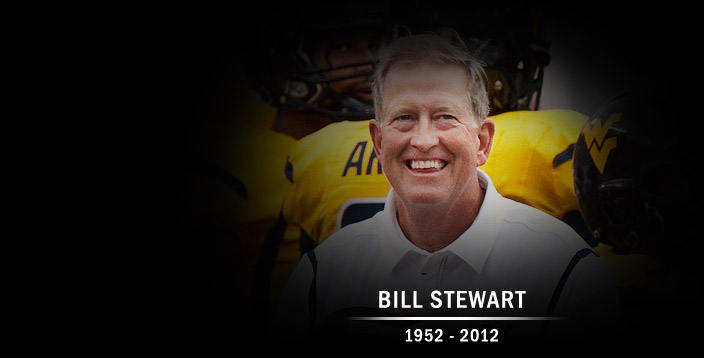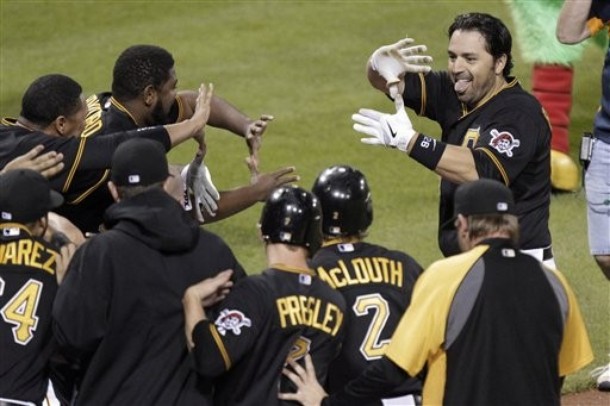When I think of the late Bill Stewart, I can’t help but also think of Harry Truman – and not just because Truman was president the year Stewart was born in 1952.
Maybe it’s a little over the top comparing a football coach to a president, but the similarities in their career paths are certainly worth mentioning.
It was Truman who once said of the job that was thrust upon him, “It’s like riding a tiger. You have to keep on riding it or else a man will get swallowed.”
When Truman succeeded Franklin Roosevelt, the weight of the world was on his shoulders. Truman took over a divided constituency, following a man who had accomplished a great deal. If FDR seemed grand and supremely capable then Truman seemed small and overmatched.
Wasn’t that what some thought of Bill Stewart when he became West Virginia’s football coach in 2008?
Truman could get annoyed at criticism, frequently speaking off the cuff and letting his emotions get the best of him whenever he felt unfairly judged.
Stewart, too, was prone to lash out in frustration whenever he felt unjustly criticized.
Truman was a man from small-town America who possessed all of its virtues and perceived limitations.
Stewart also came from small-town America and possessed similar virtues and perceived limitations.
Truman was a fighter – “Give ‘em hell Harry.”
Stewart, too, was a fighter, his jaw jutted and his back bowed, he would sometimes remind us.
Truman was a man of great conviction who could make difficult and controversial decisions when he had to. It was Truman who threatened to draft striking rail workers; it was Truman who initiated a Loyalty Program for federal employees and it was Truman who fired popular general Douglas MacArthur for insubordination.
Stewart could also make the tough call whenever circumstances required him to.
Truman was not against removing himself from the spotlight and giving others the credit when he deemed it necessary. It was Truman who insisted that the plan to rebuild Europe after World War II be named after his popular Secretary of State George Marshall (Truman wisely understood that attaching his name to it would only assure its failure).
Like Truman, Stewart was content to remain in the background during the moment of his greatest triumph out in Glendale, Ariz., that unforgettable winter night back in 2008 when West Virginia defeated Oklahoma. Stewart chose instead to let his players bask in the glory.
Truman never took himself too seriously all of the time, and sometimes he didn’t always seem to be up to the task. Some even called him an embarrassment – “To err is Truman” or “I’m just mild about Harry.”
Similar things were sometimes said about Stewart.
Truman pulled off the greatest upset victory in American political history by defeating Thomas Dewey when not a single pundit thought he had a chance to do so. People had said they voted for Truman because they liked him – not because they thought he was going to win.
Stewart pulled off the most unlikely upset by winning the 2008 Fiesta Bowl when an overwhelming number of people (84 percent of the country) thought his team had no chance of defeating the powerful Oklahoma Sooners.
After Truman’s greatest triumph, he had to contend with an extremely difficult future.
After Stewart’s greatest triumph, he had to contend with an extremely difficult future.
There were many from within Truman’s ranks such as Henry Wallace who thought they could do a better job and openly challenged him.
From the moment he was hired, Stewart also had his challengers.
Truman loved deeply his wife Bess and his daughter Margaret.
Stewart loved deeply his wife Karen and his son Blaine.
Truman was in his element when he was out with the people. He could speak their language and understood their worries and concerns.
Stewart was also a man of the people with a politician’s memory for names, dates and important accomplishments.
And, finally, during the time of Truman’s departure he had the lowest approval rating of any American president, including Richard Nixon and Jimmy Carter.
Stewart, too, had critics at the time of his departure.
Today, most Americans view Harry Truman much differently than his contemporaries. We came to better understand the sometimes impossible circumstances that fate had dealt him.
One day, when Bill Stewart’s West Virginia University head coaching tenure is viewed under a different microscope, perhaps a similar conclusion will be drawn.
































Discussion about this post